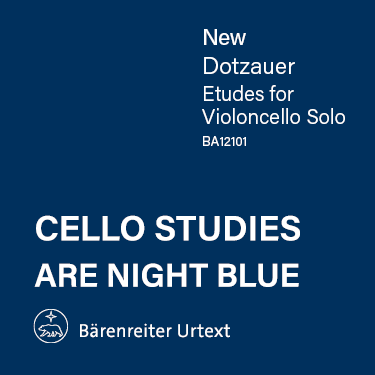Tag: music
By Lluis Claret March 30, 2019
Subjects Repertoire
Tags Bach, Bach Suites, cello, cellobello, Claret, experiences, Interpretation, Lluis, music, opportunity, perfection, performance, reflection, Suites
By Nathan Chan October 4, 2016
Subjects Artistic Vision
Tags cellist, cello, cello life, cellobello, CelloBlog, juilliard, music, nathan chan
By Arnold Steinhardt February 24, 2014
Subjects Artists
Tags Arnold, Arnold Steinhardt, artist, bold, bow control, Brahms B Major piano trio, cellist, cello, cellobello, David, David Soyer, distinctive, Ford Honors, Ford Motor Company, Guarneri String Quartet, historian, impeccable intonation, John Dalley, Marlboro Music School, Michael Tree, music, musicians, Soyer, Steinhardt, Style, Touring, Travel, tribute, University of Michigan, writer
By Avery Waite October 22, 2013
Subjects Artistic Vision
Tags activities, after-school music, Avery, balance, beauty, cello, challenges, Community, contradictions, culture, El Sistema, energy, Enharmonically Equivalent, exploration, fruit, gangs, healing, Jamaica, Kingston, music, neighborhoods, passion, safety, students, Teaching, Travel, violence, Waite
By Arnold Steinhardt September 10, 2013
Subjects Artists, Repertoire
Tags accompany, arpeggios, artistry, assistant concertmaster, beauty, Beethoven, Boston, Boston Symphony Orchestra, bow, bow control, Camille Saint-Saëns, Carnival of the Animals, cello, cellobello, changes, child, CIM, Cleveland Institute of Music, Cleveland Orchestra, connections, creativity, depth, difference, discussion, double major, essence, exceptions, extended melodies, fiddlers, Hess, ideas, improvement, intimate, intonation, Jules Eskin, Mary, melody, music, musical essence, musicality, musicianship, permier music school, phrase, phrasing, phrasing alterations, piano, re-evaluate, respect, rocking, scientists, sections of music, singing, string quartets, swaying, The Swan, tone production, vibrato, violin master-class, work

By Blogmaster July 9, 2013
Subjects Artists
Tags artist, Canada, celebration, cello, cellobello, colleagues, former students, gathering, honor, impact, inspiration, intimate gathering, Janos, life of Janos Starker, love, memories, music, musical influence, photographs, pictures, Remenyi House of Music, Starker, stories, students, Teaching, Toronto, Toronto Cricket Club, tribute
By Selma Gokcen March 11, 2013
Subjects Playing Healthy
Tags aiming for a goal, Alexander Technique, automatic, balancing the instrument, bow, breath flowing, cello, cello technique, cellobello, conceptions, evaluate, Experience, exploring our habits, framework for self-study, freedom, fundamental knowledge, Gokcen, inner composer, lasting value of Alexander Technique, left hand, movement, muscular tension, music, musical expression, nervous system, phrasing, physical pleasure of playing, place of silence, Preconceived ideas, pressure in the sound, psycho-physical, re-training of musicians, reactions, refining sensation and awareness, self-study, Selma, Six Part Series, subconscious patterns of learning, tension, thinking, Thinking in a new way, working with music
By Selma Gokcen February 11, 2013
Subjects Playing Healthy
Tags ability, Alexander Technique, attention to detail, bow arm, cellists, cello, cellobello, creating balance, cultivate awareness, energy flowing through the body, Gokcen, Habits, instrumentalists, Listening, music, musicians, opposition, Part II, powerful force of energy, proper weight transfer, quietness, relationship of the head back and spine, Selma, sharpening the senses, Six Part Series, tension in the neck, the back, Thinking in a new way, top level performing, trying, well-coordinated body, willing
By Selma Gokcen February 3, 2013
Subjects Playing Healthy
Tags Alexander Technique, animate, arms, attention, automatic movement, back, behave, brain, cello, cellobello, collapse, doing, exploration, feet, fingers, force, Gokcen, Habits, hands, laying on the floor, learning, legs, manifest, mental messages, music, music-making, nature, neck, Observation, overcome deeply ingrained habits, Pablo Casals, Patrick Macdonald, perceive, powerful expressiveness, pressure, primary information, process, pushing, re-education, react, rediscovering, Selma, shortcuts, shoulders, strain, stretching, the value of quietness, thinking
By Wayne Burak January 21, 2013
Subjects Instrument Care
Tags accessories, attention, bow, bow grip, bow rehair, Brazilwood, Burak, cello, cello bow, cello cases, cello strings, cellobello, computer back up, computers, fresh bow rehair, frog, frog position, humidity, instrument cases, latches, music, New Year's resolutions, organization, organization of sheet music, pearl eye, pernambuco, rock stops, rosin, sheet music, strings, tension, warp, Wayne
By Avery Waite November 24, 2012
Subjects Artistic Vision
Tags Afghanistan, Avery, challenges, culture, discipline, Experience, imagination, Kabul, language, motivation, music, radio, students, talent, Teaching, Waite
By Brant Taylor September 27, 2012
Subjects Artistic Vision, Orchestra
By Brant Taylor August 2, 2012
Subjects Artistic Vision
By Aliza Stewart May 31, 2012
Subjects Playing Healthy
By Aliza Stewart May 18, 2012














